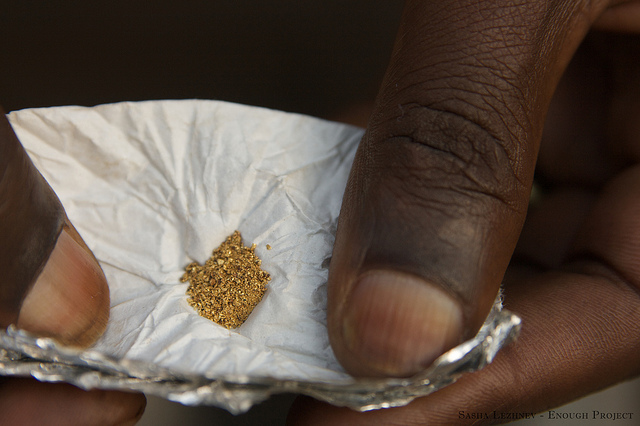The ongoing conflict in the Democratic Republic of Congo (DRC) is the deadliest since World War II. Over five million lives have been lost and ongoing violence is currently responsible for an estimated 1,100 rapes per month.
It is widely accepted that the exploitation of natural resources is an underlying driver of this war, as parties to the conflict are benefiting by controlling mines or taxing trade routes worth an estimated $180 million annually.
Global efforts to control the flow of minerals, and cut the link between trade and conflict, are not new. In December 2008, the UN Security Council adopted Resolution 1857, encouraging Member States “to ensure that companies handling minerals from the DRC exercise due diligence on their suppliers.” Section 1502 of the US Wall Street Reform and Consumer Protection Act (commonly known as the Dodd-Frank Act) helps implement that resolution.
The good news is that despite legal challenges from business groups opposing the provision, Section 1502 is already having a positive impact. According to a report by the UN Experts Group on the DRC:
“…requiring companies to exercise due diligence is effective. The Group's investigations in the DRC have shown that private sector purchasing power and due diligence implementation is reducing conflict financing, promoting good governance in the DRC mining sector, and preserving access to international markets for impoverished artisanal miners. It is worth recalling here that artisanal miners are among the prime sources of recruitment for armed groups in the DRC… The second point is that since the signing into law of the Dodd Frank act, a higher proportion than before of tin, tungsten and tantalum mined in the DRC is not funding conflict.”
Another important development can be seen in changing attitudes by the DRC Government, which now expects greater transparency. The Congolese Ministry of Mines reminds all mining operators (companies or individuals) that they are “obliged to exercise, at all level of supply, operating, transport, marketing, treatment and export chains, the specific Due Diligence recommendations of the OECD and those contained in Resolution 1952 (2010) of the UN Security Council”.
Congo and Rwanda have begun arresting officers and suspending companies for conflict minerals trading and the first-ever validation of mines occurred in eastern Congo in 2011 to check for armed groups and child labor. Leading companies like Intel, Motorola, Hewlett-Packard, and KEMET have established closed-pipe supply chains to source clean minerals from eastern DRC. In October 2012, the conflict free tin initiative was created to support responsible sourcing and economic development in the DRC; improvements are evident.
Internationally, the International Conference on the Great Lakes Region adopted its own regional certification scheme for tin, tungsten, tantalum and gold. The Rwandan and Congolese governments have adopted laws implementing the certification mechanism. The European Union has provided 3 million euros to support the ICGLR’s natural resources unit and 1 million euros for awareness raising about the OECD due diligence guidelines. A key pillar of the peace agreement for regional actors is to “strengthen regional cooperation including deepening economic integration with special consideration for the exploitation of natural resources”.
A recently concluded stakeholder consultation process sought views on potential EU initiatives with regard to conflict minerals. As I wrote in my submission to the EU consultation, and as the Institute for Human Rights and Business has also argued, it is important that rules in this area should be mandatory. The conflict in the DRC is grave enough to expect all companies sourcing from the region to exercise due diligence to ensure that their sourcing practices do not support conflict. A voluntary scheme is not sufficient to address the current crisis.
What sort of rules should the European Commission adopt? Any framework the Commission develops should be consistent with due diligence as set out by the OECD and UN. Both were developed in consultation with a broad range of actors including companies, regional and international governments, smelters, regional and international NGOs. Furthermore, the EU legislation should be consistent with section 1502 of the Dodd Frank Act, so that the information submitted in this context will also conform with new EU rules.
The OECD due diligence guidelines are flexible and recognize that not all actors are similarly situated within the supply chain and take that into account when delineating the specific steps and disclosure each actor should undertake to satisfy the requirements. The OECD framework provides an appropriate and balanced approach that informs interested stakeholders about supply chain risks related to the sourcing of conflict materials, including relating to direct or indirect support for armed conflict, while at the same time presenting a manageable, and minimally burdensome framework for companies.
Moving forward, EU leaders should consider some combination of the following measures to help incentivise companies to implement any new rules in this area:
-
Establish tariff reductions for conflict free products;
-
Put in place procurement preferences for conflict free products (and extend the privilege to companies);
-
Provide tax credits to offset the cost of compliance with reporting requirements;
-
Push for trade incentives/preferences for governments who establish benchmarks for the regional certification scheme (such as harmonizing laws, taking steps to build capacity for responsible sourcing, moving the army away from mines etc.).
The job won’t be easy, but it is important that concerted efforts are maintained to ensure that progress made so far isn’t stymied in a bureaucratic quagmire. Too many lives are at stake. And the value of those lives far outweighs the value of any minerals.
Photo: Flickr/Enough Project





























How should businesses respond to an age of conflict and uncertainty?
As 2024 began, European Commission President Ursula von der Leyen aptly summed up our deeply worrying collective moment. As she put it, speaking at the annual World Economic Forum in Switzerland, we are moving through “an era of conflict and...
26 March 2024 | Commentary
Commentary by Scott Jerbi, Senior Advisor, Policy & Outreach, IHRB